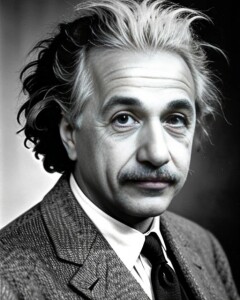Albert Einstein, an extraordinary physicist, was born on March 14, 1879, in Ulm, Germany. He has left an everlasting imprint on the field of science and is widely regarded as one of the most brilliant minds in history. Through his groundbreaking discoveries, he revolutionized our understanding of the universe, laying the foundation for modern physics. Among his notable achievements, Einstein’s renowned equation, E=mc², introduced the concept of mass-energy equivalence, serving as the cornerstone of the theory of relativity. In 1915, he fearlessly challenged the prevailing notions of space, time, and gravity by publishing his theory of general relativity. This audacious move led to remarkable advancements in cosmology and astrophysics.
Throughout his illustrious career, Einstein made significant contributions to science, putting forth revolutionary theories that continue to shape our comprehension of the natural world. His extensive research on the photoelectric effect, for which he received the Nobel Prize in Physics in 1921, paved the way for the development of quantum theory. In addition to his scientific brilliance, Einstein demonstrated an unwavering commitment to noble causes. He fearlessly voiced his support for civil rights, pacifism, and global disarmament. By believing in the power of human intellect and creativity, and advocating for social justice, he remains an enduring symbol of intellectual curiosity and humanitarianism.
Undoubtedly, Albert Einstein’s multifaceted contributions to science and his profound impact on society have solidified his position as one of the most influential figures of the 20th century.

